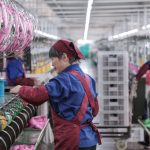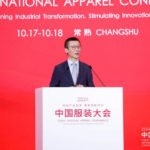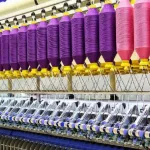
Jinda Holdings Limited, celebrating its 45th anniversary this year, has established itself as a dominant force in the linen yarn industry. With an impressive annual output of 25,000 tons, Jinda has become the world’s largest supplier of flax yarn, capturing over 10% of the global market share for pure flax yarn. The company’s exported flax yarn constitutes more than 50% of China’s total flax yarn exports, maintaining its position as the leading exporter since 2004.
Historical Background
Founded in 1999 with its first flax spinning factory in Henggang Village, Baibu Town, Haiyan, Jiaxing, Jinda has undergone significant transformation. Initially part of the silk industry, the company pivoted to flax spinning during the Asian financial crisis, recognizing the potential for growth in this sector. This strategic shift allowed Jinda to build a robust manufacturing system, leading to its current status as a global leader in linen yarn production.
Production Capacity and Global Reach
Currently, Jinda operates five spinning factories both domestically and internationally, producing enough linen yarn to supply one shirt for every 100 million people. The company’s products are distributed across more than 20 countries and regions worldwide, showcasing its extensive market reach.
Recent Developments
In a significant expansion, Jinda’s annual production of 3,000 tons of linen yarn in Egypt has been approved, marking its second overseas production base and sixth flax spinning factory. This factory is expected to commence operations by the end of next year, further solidifying Jinda’s international presence.
Innovation and Technology
Jinda’s success can be attributed to its commitment to innovation and technological advancement. The company has introduced cutting-edge production techniques, such as the first radio frequency drying equipment for flax in China and automatic doffing technology, which have set new standards in the industry. These innovations have not only improved production efficiency but also enhanced product quality, allowing Jinda to maintain a competitive edge.
Challenges and Resilience
Despite its successes, Jinda has faced challenges, particularly regarding raw material supply and market fluctuations. The company navigated crises in 2007 and 2008 by strategically managing its resources and adjusting production to meet market demands. This resilience has been crucial in maintaining its leadership position in the linen yarn market.
Future Outlook
Looking ahead, Jinda Holdings Limited is poised for continued growth. The company is focused on expanding its global footprint while enhancing its production capabilities through innovation. Ren Weiming, the chairman, emphasizes the importance of creating a symbiotic relationship within the industrial chain, aligning with Jinda’s core values of sincerity, responsibility, harmony, and win-win.
In conclusion, Jinda Holdings Limited stands as a testament to the power of strategic innovation and resilience in the face of challenges, solidifying its status as a leader in the global linen yarn industry.





